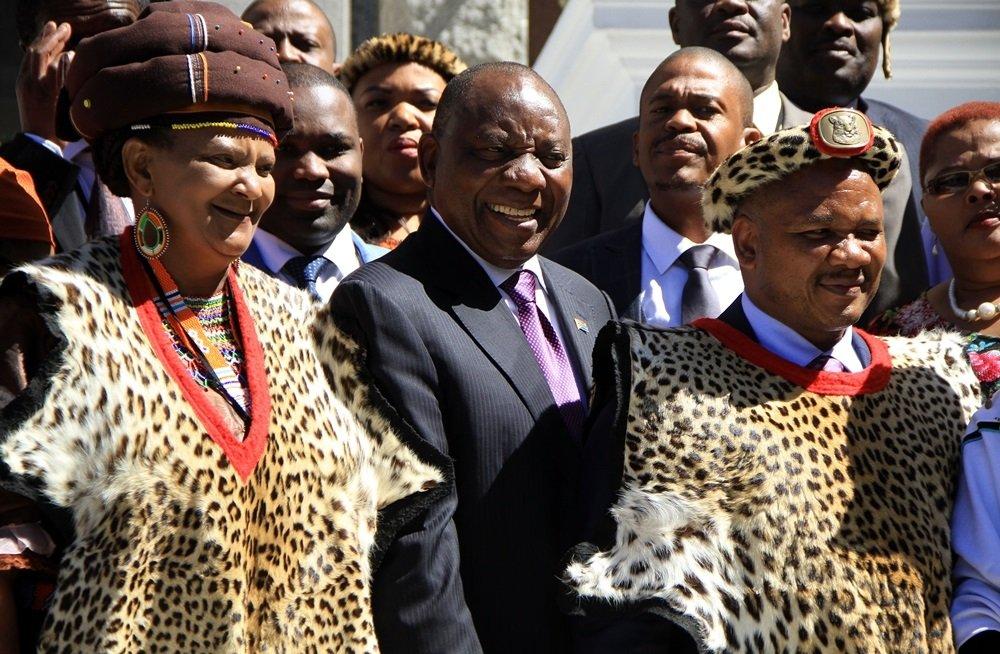Africa-Press – South-Africa. A recent Afrobarometer survey indicated good attitudes toward traditional leaders, their roles, and their impact on society as they make a comeback into mainstream public leadership after losing relevance more than three decades ago as independence swept across Africa.
But several countries, most notably South Africa, Zimbabwe, Morocco, Tanzania, Ghana, Cameroon, Malawi, Mozambique, and Sudan, have significantly more negative attitudes toward chiefs.
The positive
With the power chiefs yield and the recognition they get from elected government structures, in 2020, an academic paper by Josephine Appiah, Nyamekye Sanny, and Gilfred Boateng Asiamah, captures how chiefs and local traditional leaders heeded the call to fight Covid-19.
“They enjoy greater popular trust and more contact with citizens than most other leaders. A broader consultation with traditional and religious leaders who have close interaction with the people they lead might be an effective way to court public cooperation in the implementation of anti-Covid-19 measures,” reads the paper.
Afrobarometer is a pan-African research network that measures public attitudes on economic, political, and social matters. It found that the public trusts chiefs more than politicians.
“Chiefs get consistently higher citizen ratings for trust and performance, and are seen as markedly less corrupt when compared to elected leaders and government officials, and the gaps are widening. Chiefs find support not only among elderly rural men but also among women, urban residents, youth, and the most educated. They wield significant influence in their communities, especially when it comes to governance, conflict resolution, and land allocation,” the report says.
That could be true, especially in countries such as Zimbabwe, where political parties fight for the attention of traditional leaders.
The bad
The president of the chiefs council in Zimbabwe, Fortune Charumbira, openly supports the ruling party Zanu-PF. His chiefdom is a Zanu-PF stronghold.
There is also Chief Nhlanhlayamangwe Ndiweni, a harsh government critic ,whose area is a stronghold for the opposition.
There is a government-sponsored dispute against his leadership, and he has since relocated to the United Kingdom, where he has become a prominent critic of President Emmerson Mnangagwa.
However, many respondents wanted chiefs to leave politics to politicians.
“Two-thirds (67%) say traditional leaders should stay out of politics and let people make their own voting decisions,” the report found.
In Tanzania, Sudan, Morocco, and South Africa, “fewer than four in 10 citizens express significant trust in traditional leaders”.
It’s lesser in Ghana, Cameroon, Malawi, Mozambique, Angola, and Zimbabwe.
More community roles for chiefs
The public want traditional leaders to be given more community responsibilities because, unlike politicians, they are representatives of their ethnic or tribal groupings and are pro-development.
“Africans want their chiefs to work with elected leaders to bring development to their communities, and they even believe that the engagement of traditional leaders helps to strengthen rather than to weaken democracy,” the report says.
Trust in traditional leaders is much higher among rural respondents, increases with respondents’ age, and decreases with education, but pluralities express trust across all key demographic groups. This might be because chiefs generally represent rural communities.
“Citizens see their chiefs’ most significant role as solving local disputes (68% say they have ‘some’ or ‘a lot’ of influence in this area), [and] say they are influential in local governance (58%) and in land allocation (52%),” the report says.
The News24 Africa Desk is supported by the Hanns Seidel Foundation. The stories produced through the Africa Desk and the opinions and statements that may be contained herein do not reflect those of the Hanns Seidel Foundation.
For More News And Analysis About South-Africa Follow Africa-Press






